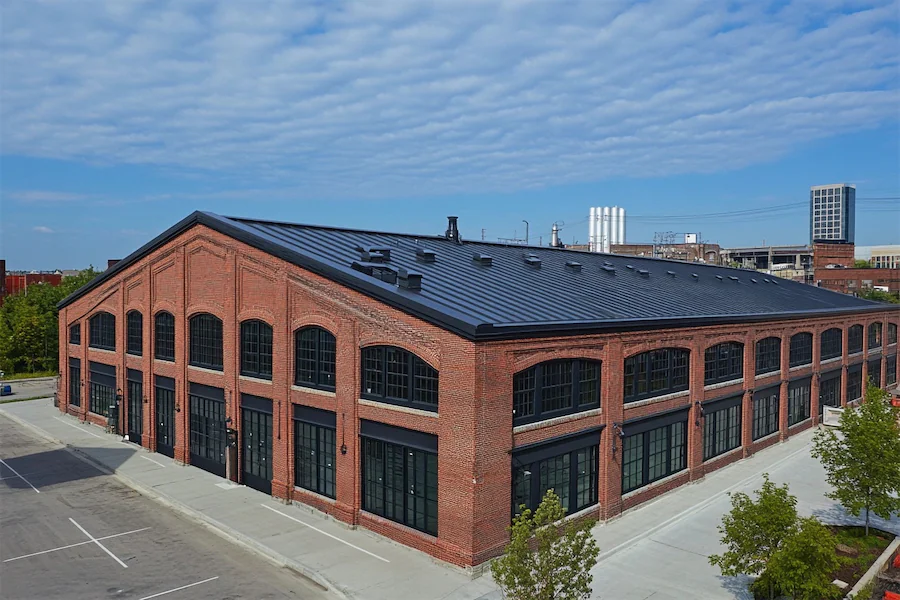Industrial roofing refers to the specialized roofing systems designed for industrial facilities such as factories, warehouses, and manufacturing plants. These roofs are engineered to withstand the unique challenges posed by industrial environments, including exposure to chemicals, extreme temperatures, and heavy machinery vibrations. Selecting the appropriate industrial roofing system is crucial for ensuring the safety, efficiency, and longevity of the facility.
History and Origins of Industrial Roofing
The evolution of industrial roofing is closely tied to the advancements in industrial architecture and construction. During the Industrial Revolution, the need for large, open spaces led to the development of expansive roofing systems. Materials like metal and built-up roofing (BUR) systems became popular due to their durability and ability to cover vast areas without extensive support structures. Over time, innovations such as membrane roofing and modified bitumen were introduced to address specific industrial needs, offering improved performance and longevity.
Key Features of Industrial Roofing
Industrial roofing systems are characterized by several key features:
- Durability: Designed to withstand harsh environmental conditions and heavy usage.
- Chemical Resistance: Essential for facilities dealing with corrosive substances.
- Thermal Insulation: Helps in maintaining internal temperature, leading to energy efficiency.
- Fire Resistance: Critical for ensuring safety in environments with flammable materials.
- Low Maintenance: Reduces operational disruptions and long-term costs.
Applications of Industrial Roofing
Industrial roofing systems are utilized across various sectors:
- Manufacturing Plants: Require roofs that can handle vibrations and potential chemical exposures.
- Warehouses: Need expansive, durable roofs to protect stored goods.
- Power Plants: Demand roofing systems with high thermal resistance and durability.
- Chemical Processing Facilities: Necessitate roofs with exceptional chemical resistance.
Considerations When Choosing Industrial Roofing
When selecting an industrial roofing system, consider the following factors:
- Material Selection: Choose materials that align with the facility’s specific needs, such as chemical resistance or thermal insulation.
- Installation and Maintenance: Ensure proper installation by experienced professionals and establish a regular maintenance schedule to prolong the roof’s lifespan.
- Budget Constraints: Balance initial costs with long-term benefits, considering factors like durability and maintenance expenses.
- Environmental Impact: Opt for eco-friendly materials and designs that contribute to sustainability goals.
Conclusion
Industrial roofing plays a pivotal role in the functionality and safety of industrial facilities. By understanding its history, key features, and applications, stakeholders can make informed decisions that align with their operational needs and sustainability objectives.
